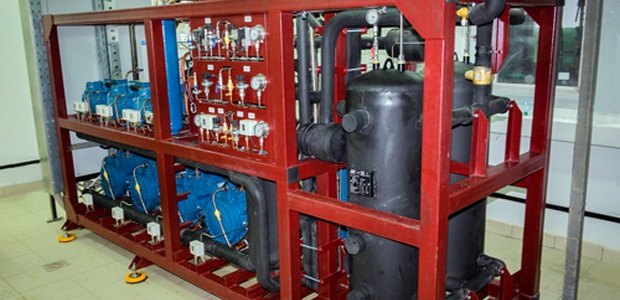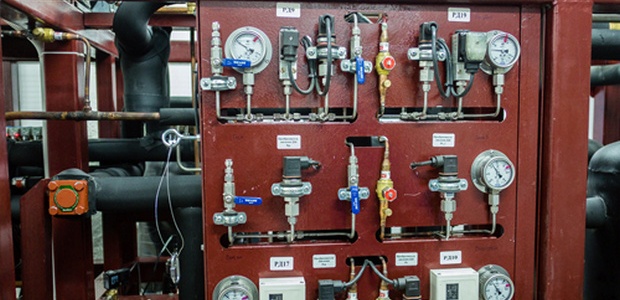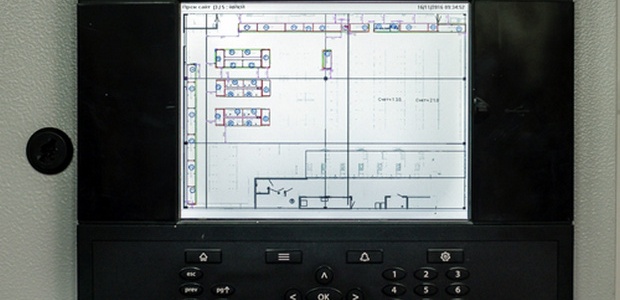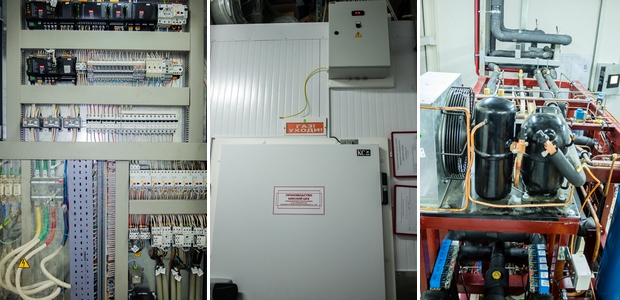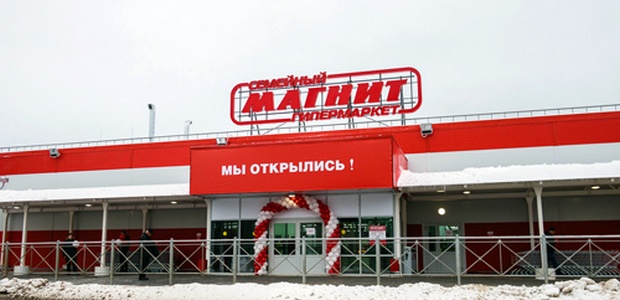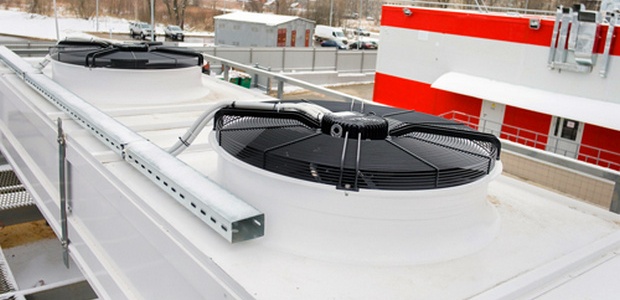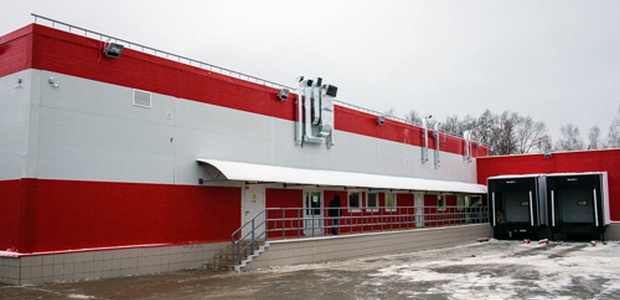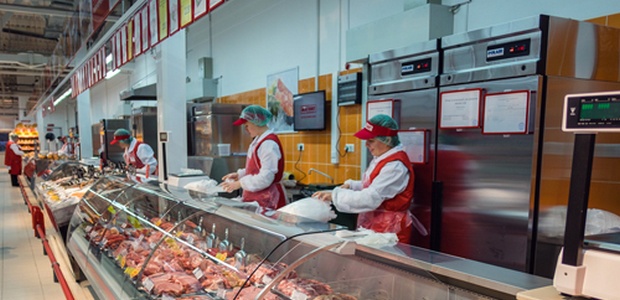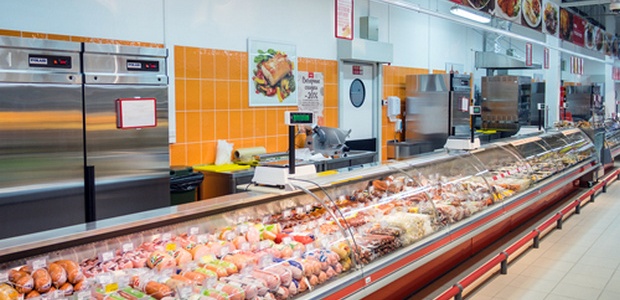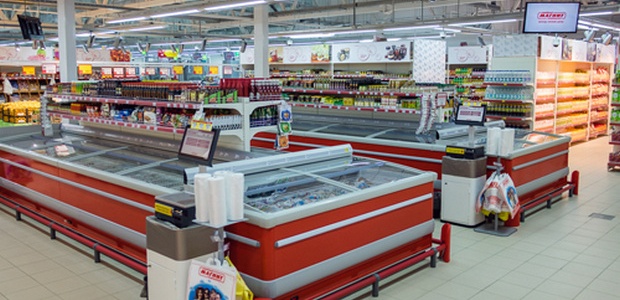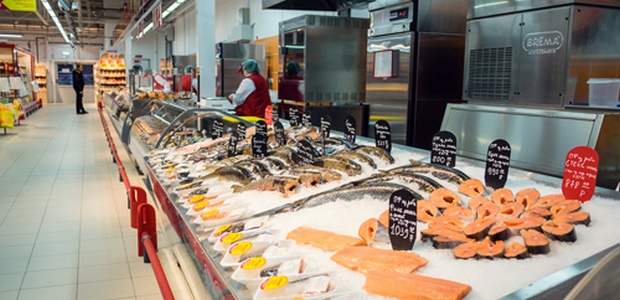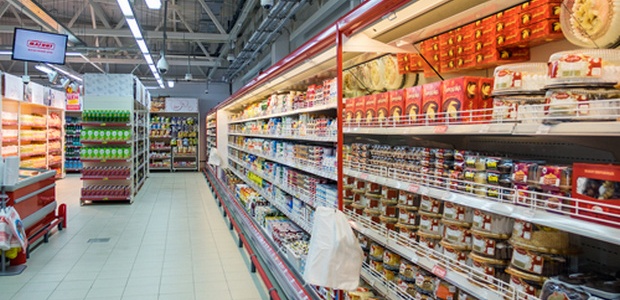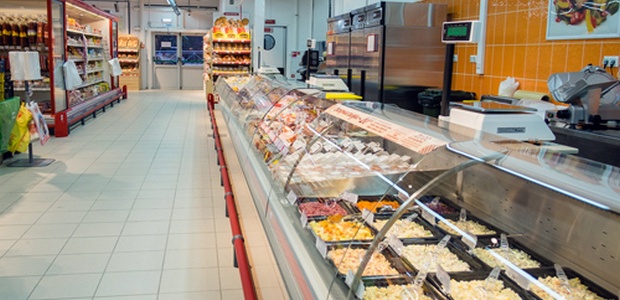Russia’s First Transcritical CO2 Supermarket Launched with UNIDO Support
Russian retailer Magnit opened a new supermarket featuring a CO2 transcritical refrigeration system manufactured and installed by NORD-SM with UNIDO technical support.
Magnit, a Russian retail chain, contracted NORD-SM to develop, install, and put into service a transcritical CO2 refrigeration system at a supermarket in Voskresensk, Moscow region. UNIDO and Danfoss maintained the project, and on October 16, 2016, Russia’s first transcritical CO2 supermarket was opened.
Refrigeration system and supermarket:
- Retail area — 900 m2
- Transcritical CO2 booster central by NORD-SM
- Low temperature refrigeration units — 12
- Medium temperature refrigeration units — 22
- Low temperature refrigerating chambers — 3
- Medium temperature refrigerating chambers — 2
- Refrigerated zones — 2
- Low temperature refrigerating capacity — 20 kW at -30 °C
- Medium temperature refrigerating capacity — 95 kW at -10 °C
- Refrigeration units use direct expansion
- Refrigerated zones use secondary refrigeration
Background
To implement this project, NORD-SM made great efforts together with UNIDO and Danfoss. They built a working model of a CO2 store at NORD-SM’s training center and constructed a mobile training CO2 unit. With UNIDO’s technical assistance and co-financing, NORD-SM could convert its production facilities to launch production of CO2 refrigeration equipment. As a result, the producer could improve its production capabilities and master production and assembly of CO2 units.
CO2 as refrigerant
CO2 is an eco-friendly natural refrigerant. It is widespread, not expensive and nonflammable. Under condensation temperatures below critical ones, CO2 refrigeration systems feature higher COP than traditional systems with synthetic refrigerants. High volumetric refrigerating effect allows to reduce work volume of compressors and pipe sizes. CO2 systems operate under high working pressures, so they are produced of durable materials and installation should be of best performance.
Due to these properties, CO2 refrigeration units are compact, energy-efficient and require less materials. The energy consumption in the moderate climate is expected to be 20-25% less compared to similar systems based on traditional refrigerants.
Translation by Ecocool.com

